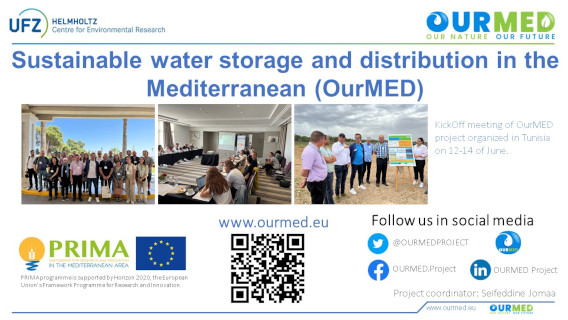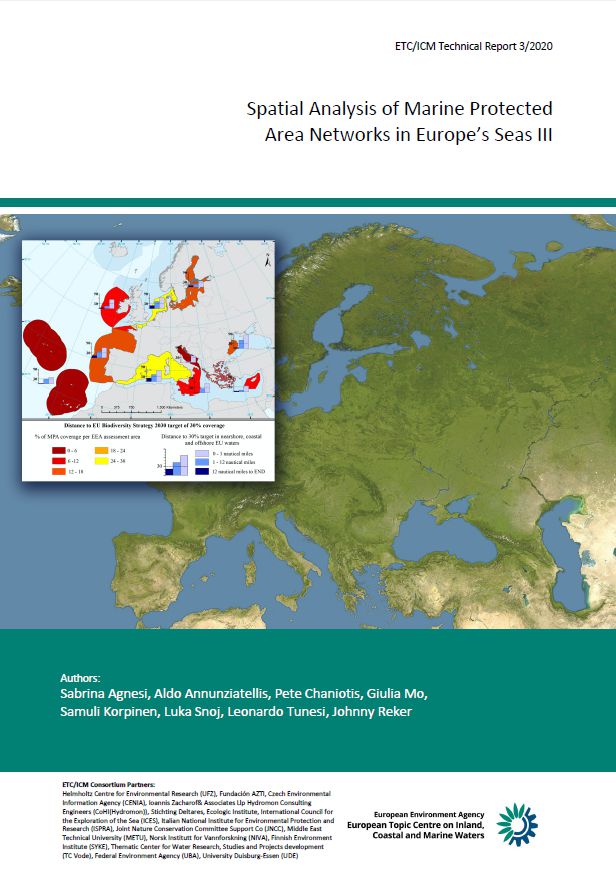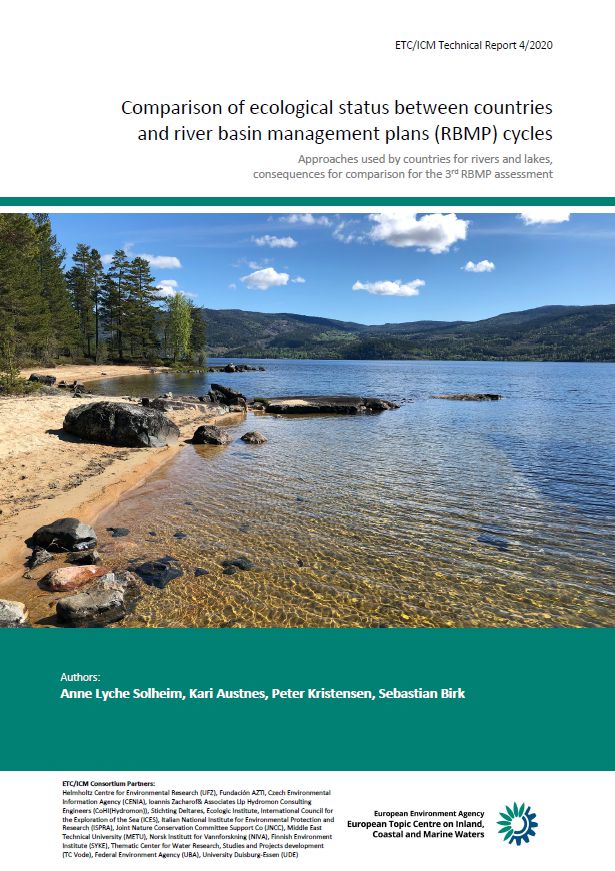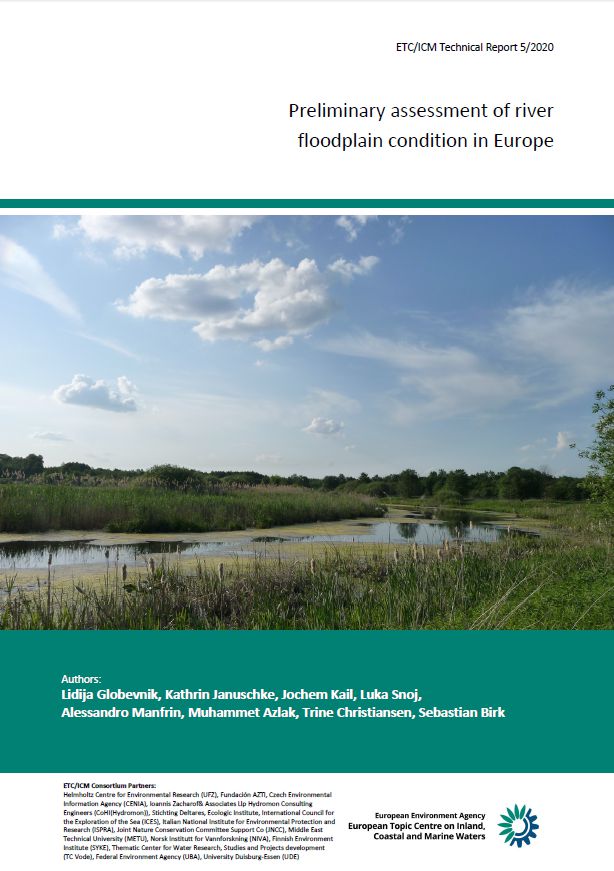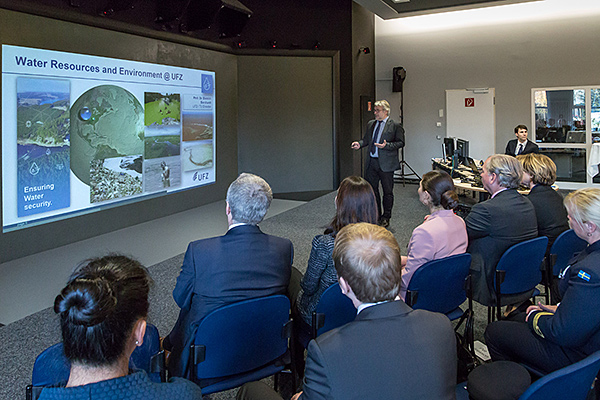News from the department
15.02.2023
Publication Büttner, O. et. al. (2022) in Water Research
"Why wastewater treatment fails to protect stream ecosystems in Europe"
has been featured in the recent research-newsletter of the European Commission and discussed in the context why, despite a variety of efforts, less than half of Europe's watercourses are in a "good ecological status" due to multiple pressures from human impacts.
News Archive
16.06.2022
ETC/ICM Report 1/2022 Comparison of multi-metric indicator-based tools for assessment of the environmental status in Europe’s seas
This report compares EU Member States’ Marine Strategy Framework Directive (MSFD) 2018 reporting on the Art. 8, 9 and 10 with the recent thematic assessments on eutrophication, biodiversity, contaminants and ecosystem health of the European Environment Agency (EEA) by applying multi-metric indicator-based tools, i.e. new versions of HEAT, CHASE and MESH. The aim of this comparison is to explain the observed differences between the assessments. Further, special focus has been put on the EEA tools and their strengths and weaknesses.
23.9.2021
EEA-Bericht
Drivers of and pressures arising from selected key water management challenges
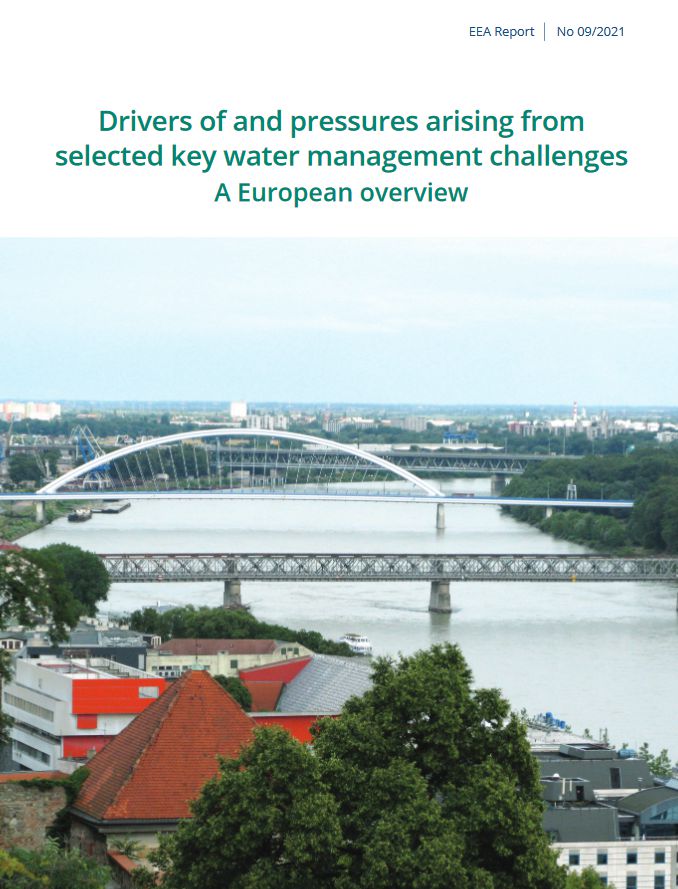 This report aims to give a European overview of the main drivers and pressures that are at the core of key water management challenges and which put European water bodies most at risk of not achieving key environmental objectives. Identifying the pressures from and drivers of key water management challenges at the European level can help in prioritising the main issues that should be tackled with measures.
This report aims to give a European overview of the main drivers and pressures that are at the core of key water management challenges and which put European water bodies most at risk of not achieving key environmental objectives. Identifying the pressures from and drivers of key water management challenges at the European level can help in prioritising the main issues that should be tackled with measures.
14.6.2021
Monitoring Plastics in Rivers and Lakes
Guidelines for the Harmonization of Methodologies
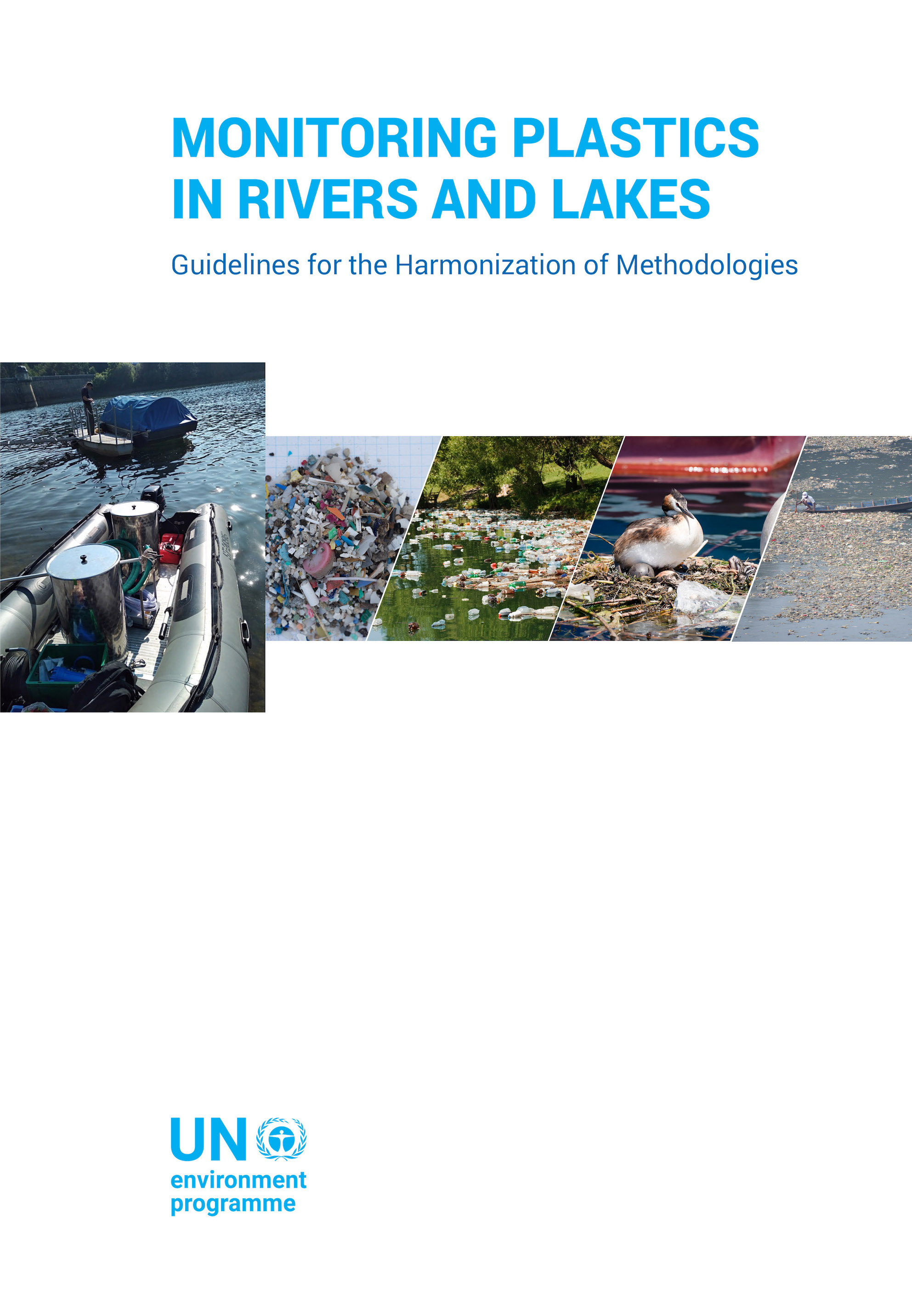 Plastic debris is present in all ecosystems. Research, societal awareness and action have long focused on marine plastics. Current knowledge suggests that most marine plastics originate from land-based sources. Monitoring programmes are needed for assessing the state of and trends of plastic contamination in freshwater systems such as rivers and lakes as well as the role of rivers for connecting land-based plastic sources with the marine environment. They are also needed to achieve target 14.1 of the Sustainable Development Goals: “By 2025, prevent and significantly reduce marine pollution of all kinds, particularly from land-based activities, including marine debris and nutrient pollution.
Plastic debris is present in all ecosystems. Research, societal awareness and action have long focused on marine plastics. Current knowledge suggests that most marine plastics originate from land-based sources. Monitoring programmes are needed for assessing the state of and trends of plastic contamination in freshwater systems such as rivers and lakes as well as the role of rivers for connecting land-based plastic sources with the marine environment. They are also needed to achieve target 14.1 of the Sustainable Development Goals: “By 2025, prevent and significantly reduce marine pollution of all kinds, particularly from land-based activities, including marine debris and nutrient pollution.
The purpose of this report is to provide guidelines for the monitoring of plastic contamination in freshwater environments including rivers, lakes, drinking water and waste water.
9.6.2021
National Water Strategy
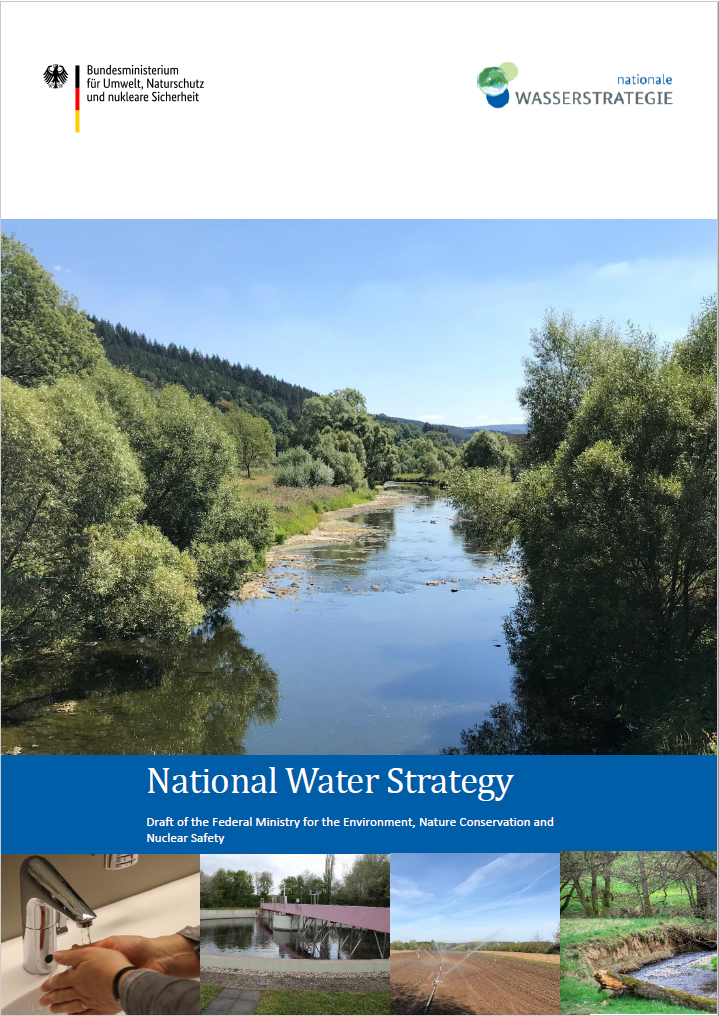 The BMU's National Water Strategy looks at the challenges facing water management in Germany up to the year 2050. For ten strategic issues, it describes where we want Germany to be by 2050 and the goals and measures the BMU is pursuing along the way.
The BMU's National Water Strategy looks at the challenges facing water management in Germany up to the year 2050. For ten strategic issues, it describes where we want Germany to be by 2050 and the goals and measures the BMU is pursuing along the way.
The BMU draft for a "National Water Strategy" is based on the results of a two-year National Water Dialogue. More than 200 participants from the water industry, agriculture and research, from associations, the federal states and municipalities, together with the BMU, have compiled the most important challenges and goals for the development of water management. The National Citizens' Dialogue on Water contributed further ideas and collected the public's demands on policymakers. For the transformation to sustainable water management, we need all stakeholders involved.
Further information ...
21.01.2021
The European Topic Centre on Inland, Coastal and Marine waters (ETC/ICM) has published its Technical Report 3-5/2020:
- Spatial Analysis of Marine Protected Area Networks in Europe’s Seas III
The report presents an overview of the spatial distribution of marine protected areas (MPAs) in Europe’s seas established as of 2019 (excluding overseas territories). It represents an updated rerun and advancement of the spatial statistics and of the coherence analysis run by the European Topic Centre on inland, coastal, and marine waters (ETC/ICM) on MPA reported data in 2012 and 2016. As such it provides insight on the observed changes in European MPAs established in the three-year period 2017-2019.
- Comparison of ecological status between countries and river basin management plans (RBMP) cycles
- Preliminary assessment of river floodplain condition in Europe
This report provides an assessment methodology of floodplain condition in terms of extent, structure and processes at the European scale and give first results, Similar to ecological status assessment of water bodies according to the Water Framework Directive, the floodplain condition assessment refers to ecological floodplain types and type-specific reference conditions. Available data allowed for assessing the floodplain condition for 70 % of the river sub-catchments in Europe.
The European Topic Centre on Inland, Coastal and Marine waters (ETC/ICM) has published its Technical Report1/2020:
"Pesticides in European rivers, lakes and groundwaters - Data assessment"
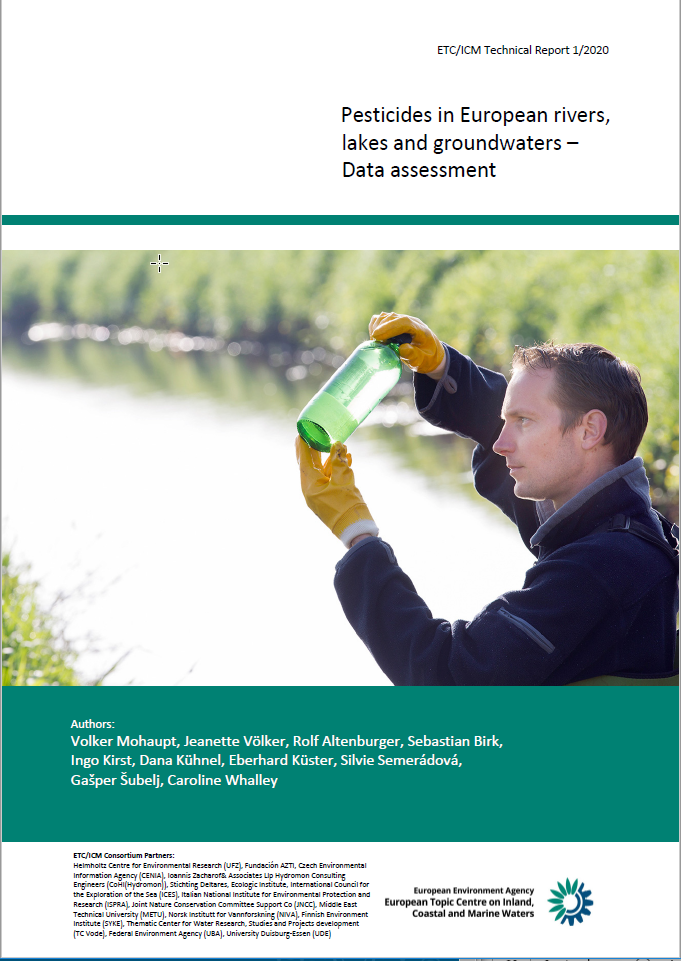
This report provides an overview of the available information on pesticide concentrations in fresh waters and groundwaters in Europe. The report summarizes data, reported to WISE-SoE by Eionet countries in terms of concentrations in rivers, lakes and groundwater between 2007 and 2017. This includes information on 180 substances that have been characterized by type of use, as well as measures, environmental quality standards and analytical limits of quantification.
ETC/ICM, leaded by UFZ/ Prof. D. Borchardt, contributed to the updated WISE-Marine website was launched begin of July. This happened together with the report on the Marine Strategy Framework Directive (MSFD) Article 20 implementation as well as an report on the key messages on the current use of Europe´s seas and its combined effects on marine ecosystem condition – better known as "Marine Messages II".
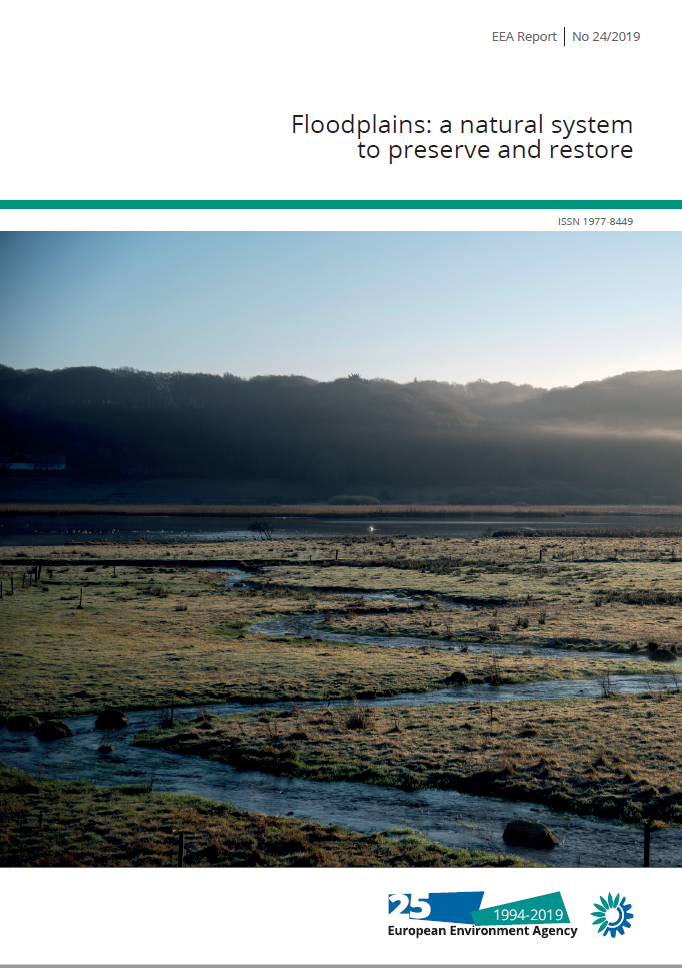
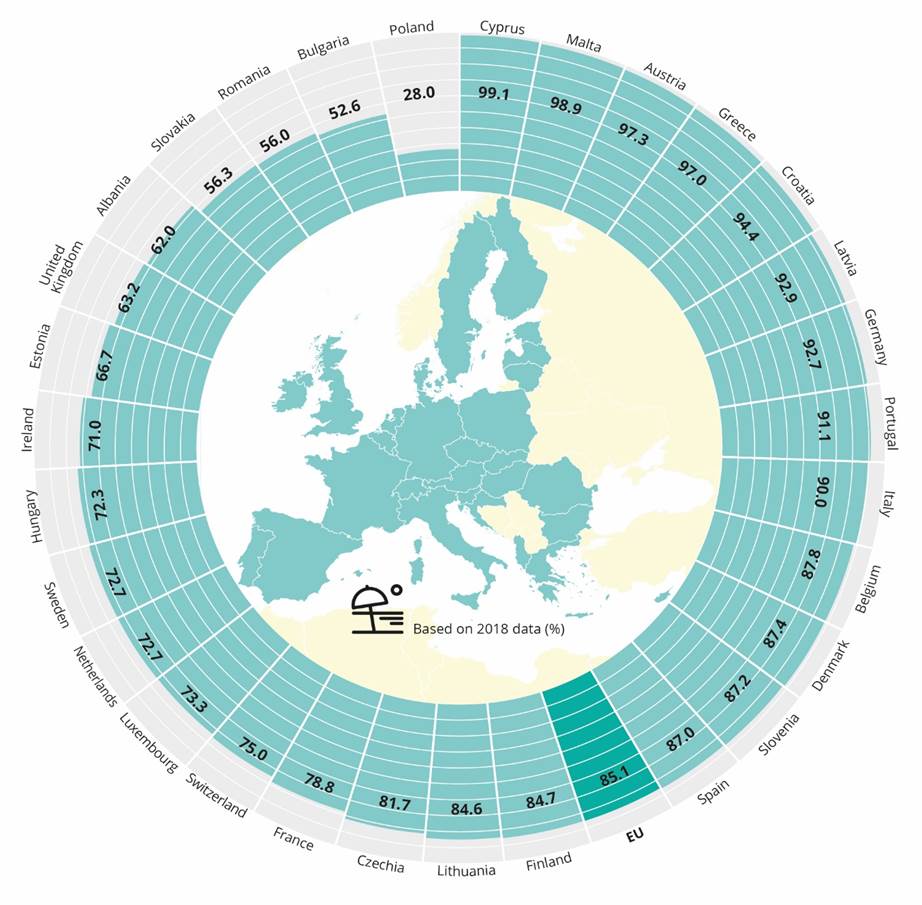
The European Environment Agency and the European Commission have published the Report on European bathing water quality in 2018. Over 85% of bathing water sites across Europe monitored last year met the European Union’s high quality standards for water cleanliness. German bathing waters received top marks also in the 2018 bathing season: 98% of the bathing waters monitored in Germany met the quality requirements of the EC Bathing Water Directive. Approximately 93% were even rated "excellent" - the best mark. Only six bathing waters in Germany were rated 'poor' for the 2018 season by the European Commission.
Also this year's Bathing Water Report was supported by the European Topic Centre for Inland, Coastal and Marine waters (ETC/ICM), which is led by the UFZ.
The European Topic Centre on Inland, Coastal and Marine waters (ETC/ICM) has published its first Technical Report in 2019: "Development of a pilot 'European seafloor integrity account' assessing fishing pressure on seabed habitats"
The aim of this study is to review the existing approaches to assess the impact of fishing-induced physical disturbance on seabed habitats.The European Environment Agency (EEA) has published the EEA Report No 25/2018 titled:
"Contaminants in Europe's seas - Moving towards a clean, non-toxic marine environment"
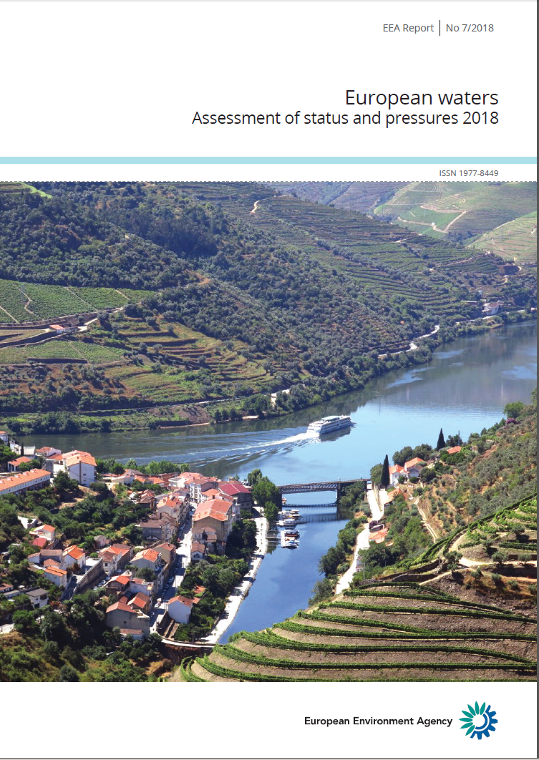
The European Environment Agency (EEA) has published on 3rd July 2018 the report "European waters - Assessment of status and pressures 2018".
This report, which was produced by the European Topic Center on inland, coastal and marine waters (ETC/ICM) and EEA, assesses the data and information reported by European Member States under the Water Framework Directive for the 1st and 2nd River Basin Management Plans (RBMPs). It contains the links to the WFD visualisation tool showing the data in tables, graphics and maps.Prof. D. Borchardt receives honorary doctorate from the Mongolian Academy of Sciences
On May 29, 2018, Prof. Dr. Dietrich Borchardt the honorary of the doctorate of the Mongolian Academy of Sciences was awarded. This was due to his many-years engagement and service in the successful implementation of science, technology and education programs in the Mongolian-German scientific cooperation for the development of integrated environmental and water management in Mongolia. The background to this is the 12-year project
"Integrated Water Resources Management in Central Asia: Model Mongolia (MoMo)",
in which a science-based integrated water resource management was developed, tested and successfully implemented in key areas of action.
Report on bathing water quality in Europe published:
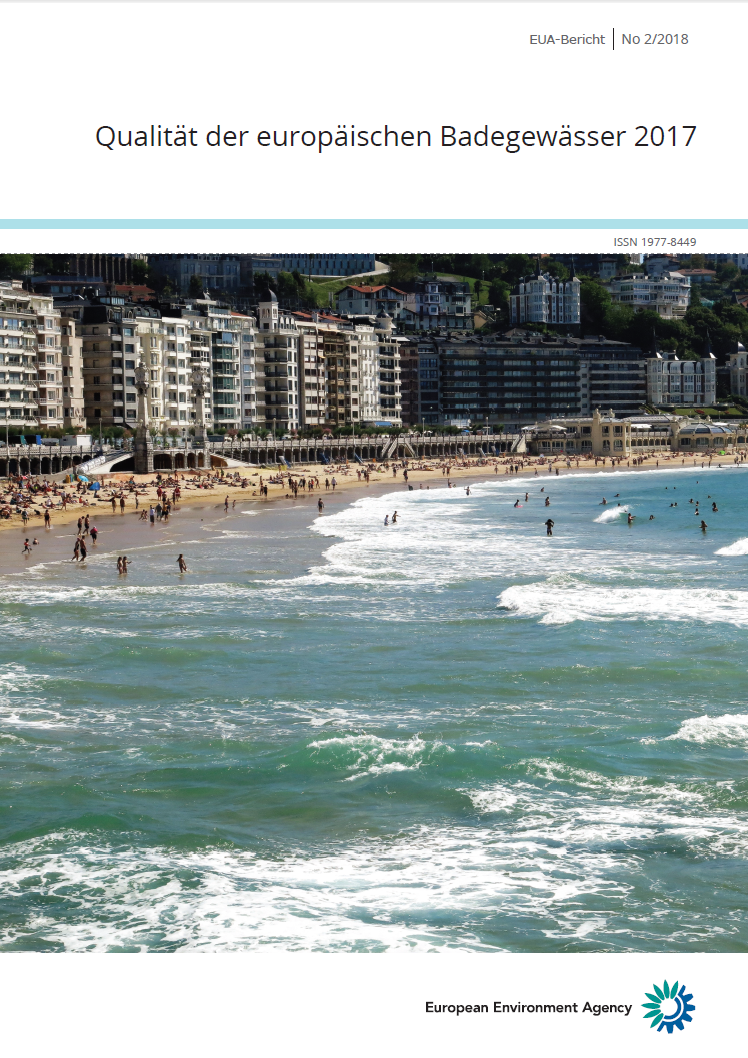
22.3. − World Water Day
Dietrich Borchardt appointed as representative of Germany to the Scientific Advisory Board of PRIMA
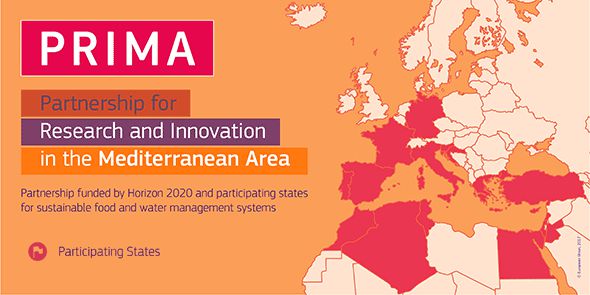
Dietrich Borchardt was nominated by the Finding Commission for the Scientific Advisory Board of the "Partnership for Research and Innovation in the Mediterranean (PRIMA)" as representative of Germany and has now been elected to this body by the PRIMA General Assembly for a term of three years. PRIMA is an initiative of 11 EU and 9 non-EU countries with a budget of € 220 million over a period of 10 years. The PRIMA program aims to strengthen research, innovation and capacity development in the Mediterranean region in the areas of water management and agro-food systems with a multidisciplinary approach. Key topics include: a) sustainable management of water resources and the environment; (b) sustainable land management systems under Mediterranean environmental conditions; (c) value chains for regional and local development in the Mediterranean.

